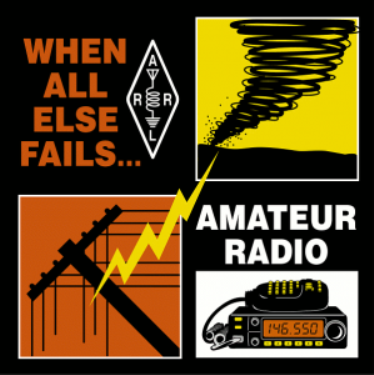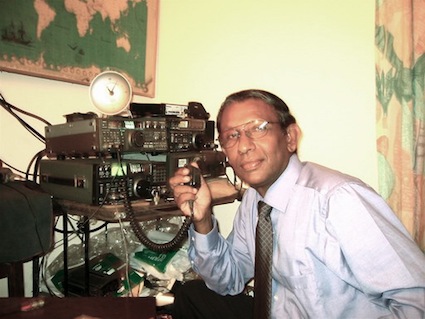Who's Afraid of Amateur Radio? Tsunami's heroic technology has few backers in Sri Lanka
Five years ago, in the immediate aftermath of the Indian Ocean Tsunami, amateur radio helped revive emergency communications with some of the worst affected locations.
The decades old practice was hailed as the 'low tech' miracle that literally helped save lives. Where electricity and telephone services — both fixed and mobile — had been knocked down, amateur radio enthusiasts (or 'radio hams') restored the first communication links.
They were at the forefront of relief efforts, for example, in the Andaman and Nicobar Islands in India, and in Hambantota in southern Sri Lanka.
Within hours of the tsunami, a short wave radio link was established between the disaster management operation at the Prime Minister's office in the capital Colombo and government offices in the stricken south.
"We went in because the District Secretaries office only had a satellite phone and communications was difficult," recalled Victor Goonetilleke, then President of the Radio Society of Sri Lanka (RSSL). The service was discontinued when other disrupted communications networks resumed.
As he later summed up: "When all else is dead, short wave is alive."
Goonetilleke, one of the island's best known radio hams (call sign: 4S7VK), reported at the time that "uncomplicated shortwave" radio saved the day. And it was accomplished by unpaid radio enthusiasts using nothing more than basic equipment and determination. The only cost to the state was providing food for volunteers operating round the clock.
Sir Arthur C Clarke, inventor of the communications satellite and long time resident of Sri Lanka, wrote in Wired magazine: "We might never know how many lives they saved and how many minds they put at ease, but we owe a debt to Marconi's faithful followers."
Sidelined and overlooked
Now, fast forward five years to the present. Notwithstanding their celebrated role after the tsunami, radio hams have been sidelined in Sri Lanka. Their very hobby is being frowned upon by the state on the grounds of…national security.
"As the applause died away, everything was forgotten," Victor Goonetilleke recalled last week in an email interview. The only recognition in Sri Lanka was 'a very appreciative letter' from President Mahinda Rajapakse, who as Prime Minister at the time spearheaded the governmental response to the tsunami.
Encouragingly, however, the Radio Society received awards and accolades from Europe, Japan and India for their post-Tsunami work.
In the months following the mega-disaster, Sri Lanka passed a new disaster law and set up a new public institution mandated to coordinate disaster risk reduction and emergency responses.
"We have made presentations and participated in every disaster management seminar, but no follow up has taken place despite standing ovations at such seminars/meetings," says a dejected Goonetilleke, who is currently secretary and disaster operations manager of the Radio Society.
by
.......
Nalaka Gunawardene
Director/CEO - TVE Asia Pacific
9/3, Gemunu Mawatha, Nawala Road, Nugegoda, Sri Lanka.
T: +94 11 4412 195; F: +94 11 4403 443; E: nalaka@tveap.org
www.tveap.org | www.savingtheplanet.tv
Online video: http://www.youtube.com/TVEAPfilms
Personal Blog: http://movingimages.wordpress.com/
Twitter: http://twitter.com/NalakaG





No comments:
Post a Comment